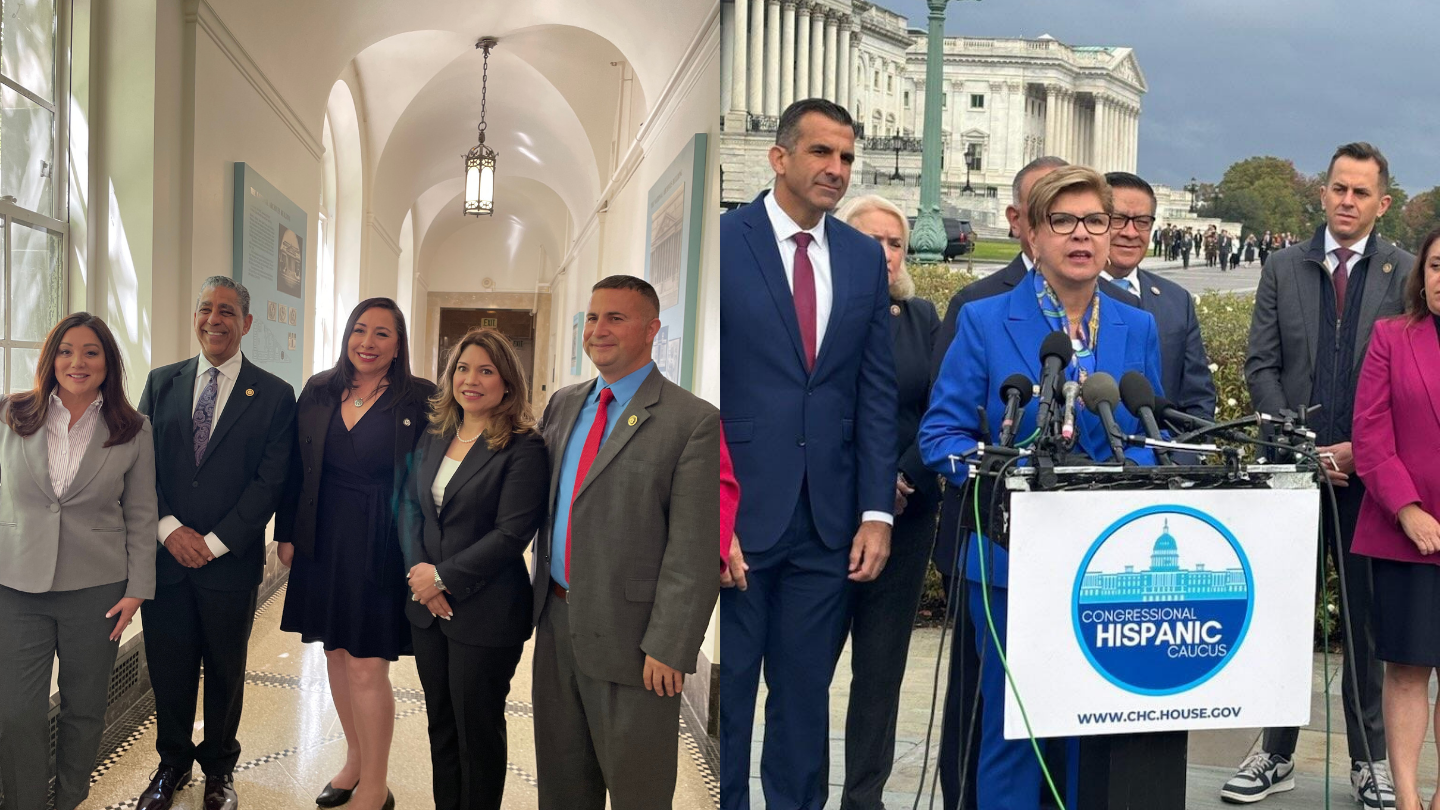State Legislatures: A Pathway to Hispanic Representation in Congress

From left: Rep. Lori Chavez-DeReme (OR), Rep. Adriano Espaillat (NY), NHCSL President Rep. Angela Romero (UT), U.S. Department of Commerce Assistant Secretary Susie Feliz and Rep. Darren Soto (FL); and NHCSL Immediate Past President Congresswoman-elect Nellie Pou (NJ) during the Congressional Hispanic Caucus orientation in November 2024. Credits: NHCSL and Nellie Pou.
By Kenneth Romero, NHCSL Executive Director
Download the 2024-2025 Winter Edition of NHCSL's Newsletter here.
As the U.S. Hispanic population continues to grow and diversify, so too does the need for more representation at all levels of government. NHCSL’s key mission is to make Hispanic state legislators more efficient at representing their constituents, with the understanding that our state capitols provide platforms to advance policies that reflect the needs and priorities of Hispanic families. Serving in state legislatures also provides a vital pathway for Latinos to reach higher elected offices, including Congress.
Hispanic representation in state legislatures has steadily increased over the past few decades, reflecting the demographic changes across the United States. As of early 2024, before the last election, there were more than 450 Hispanic state legislators in the United States, with representation in 37 states and Puerto Rico. This is a far cry from when our Caucus was founded 35 years ago, and Latinos were largely absent from elected office and political power. And having Hispanic elected officials in state legislatures is not just about numbers or representation for the sake of it; it is about ensuring that the voices of our communities are heard. Latinos make up nearly 19% of the U.S. population, but we are still underrepresented in key decision-making bodies. This underrepresentation can lead to policies that overlook or neglect the unique perspectives our families have and the issues they face.
State legislatures play a crucial role in our political system as a pipeline to higher office. Over the years, a significant number of Members of Congress have emerged from state legislatures, where they gained valuable public policy experience and built strong connections with their constituents. This pathway to Congress is not only a natural progression but also a strategic one for cultivating a new generation of Latino leaders who understand the complexities of lawmaking and are grounded in the concerns of their communities.
A Vital Steppingstone
In fact, a considerable number of Latinos in the U.S. House of Representatives first gained political experience as state legislators. Rep. Darren Soto (FL), Rep. Adriano Espaillat (NY), Rep. Julian Castro (TX), Rep. Grace Napolitano (CA), Rep. Jimmy Gomez (CA), Rep. Delia Ramirez (IL), and Rep. Andrea Salinas (OR) are all alumni of their state legislatures, and NHCSL’s Immediate Past President, Representative-elect Nellie Pou (NJ), and Senator-elect Ruben Gallego (AZ) just made history by becoming the first Latina to represent New Jersey in Congress and the first Latino to represent Arizona in the Senate. This underscores the importance of having more Latinos in state legislatures, since they provide invaluable learning and training opportunities for leaders to then serve in Congress. Importantly, they also allow them to build solid and genuine relationships with their communities, ensuring that they remain responsive to the needs of their constituents and connected to the day-to-day realities of all Americans across the United States, including communities of color.
As one of the largest and fastest-growing demographic groups, having Hispanics serve in all levels of government is essential to ensuring that the diverse needs of the Hispanic community are represented in the policymaking process. Hispanics contribute to our Nation’s workforce, culture, and innovation. Hispanic policymakers can champion policies that address issues such as immigration reform, equitable access to education, and healthcare disparities. Their presence, especially in Congress, also strengthens the democratic process by promoting inclusivity, ensuring that all Americans ––regardless of background–– have a voice in shaping laws and policies. Ultimately, this diversity of representation leads to a more responsive and effective government.
